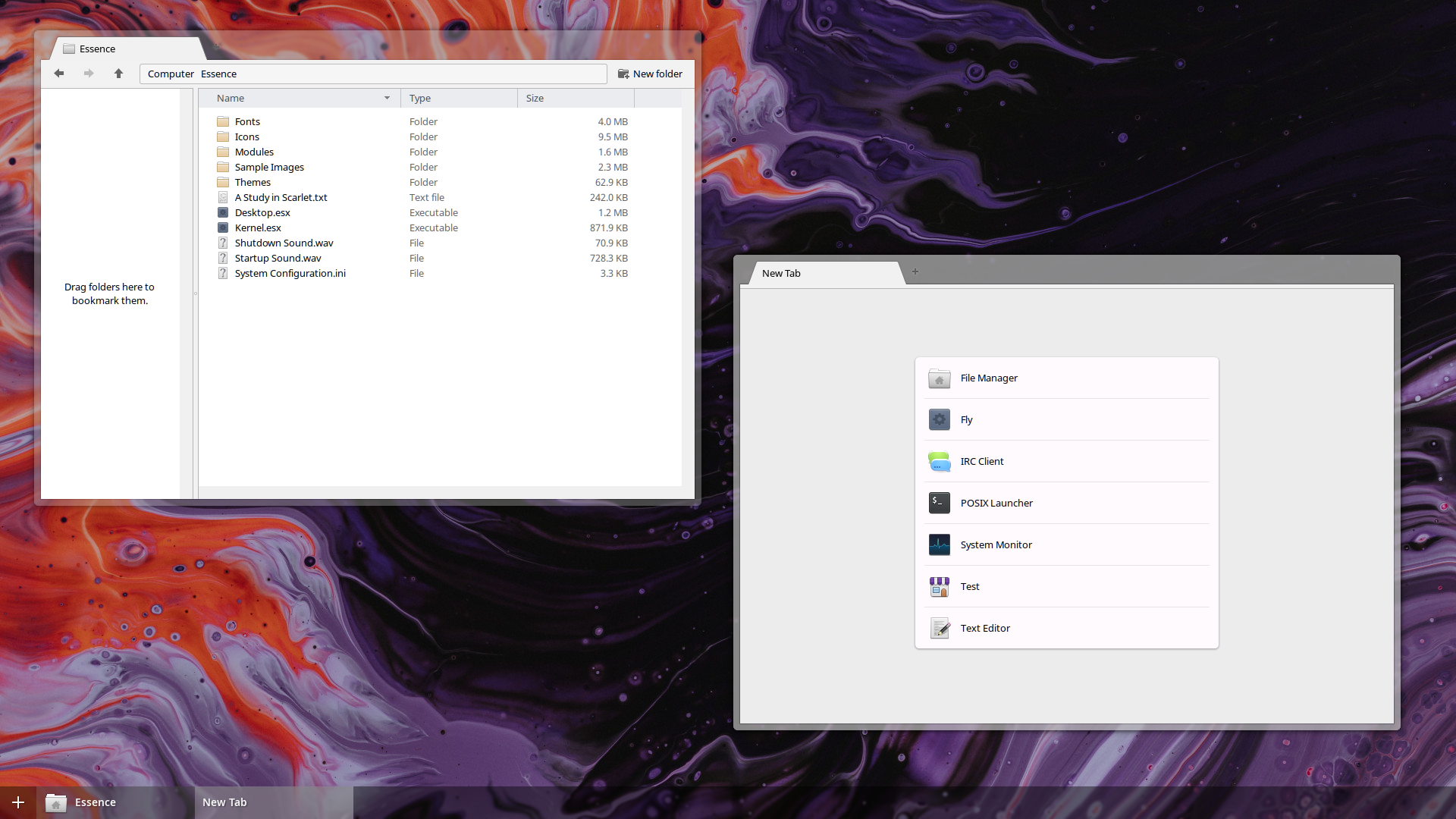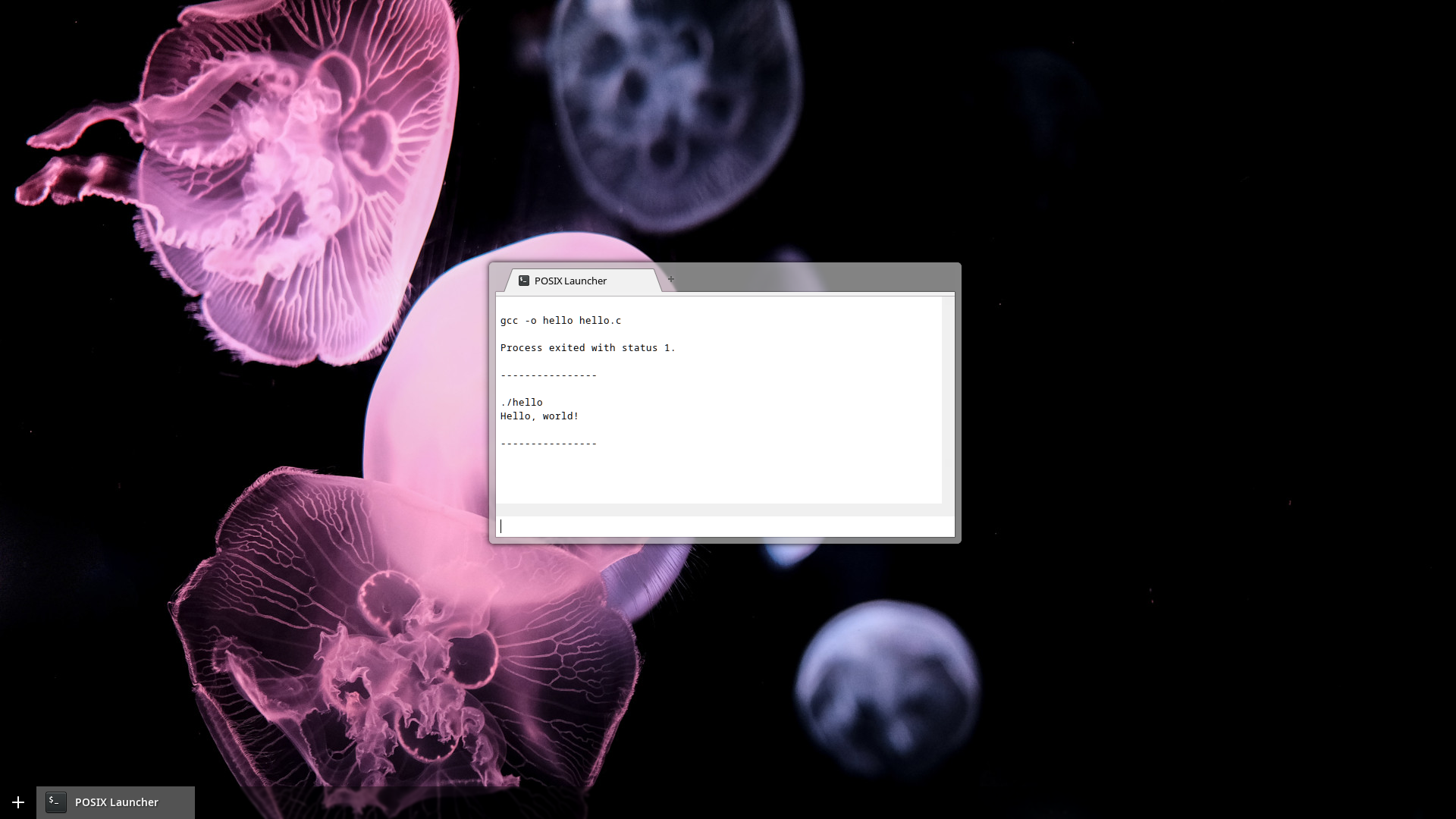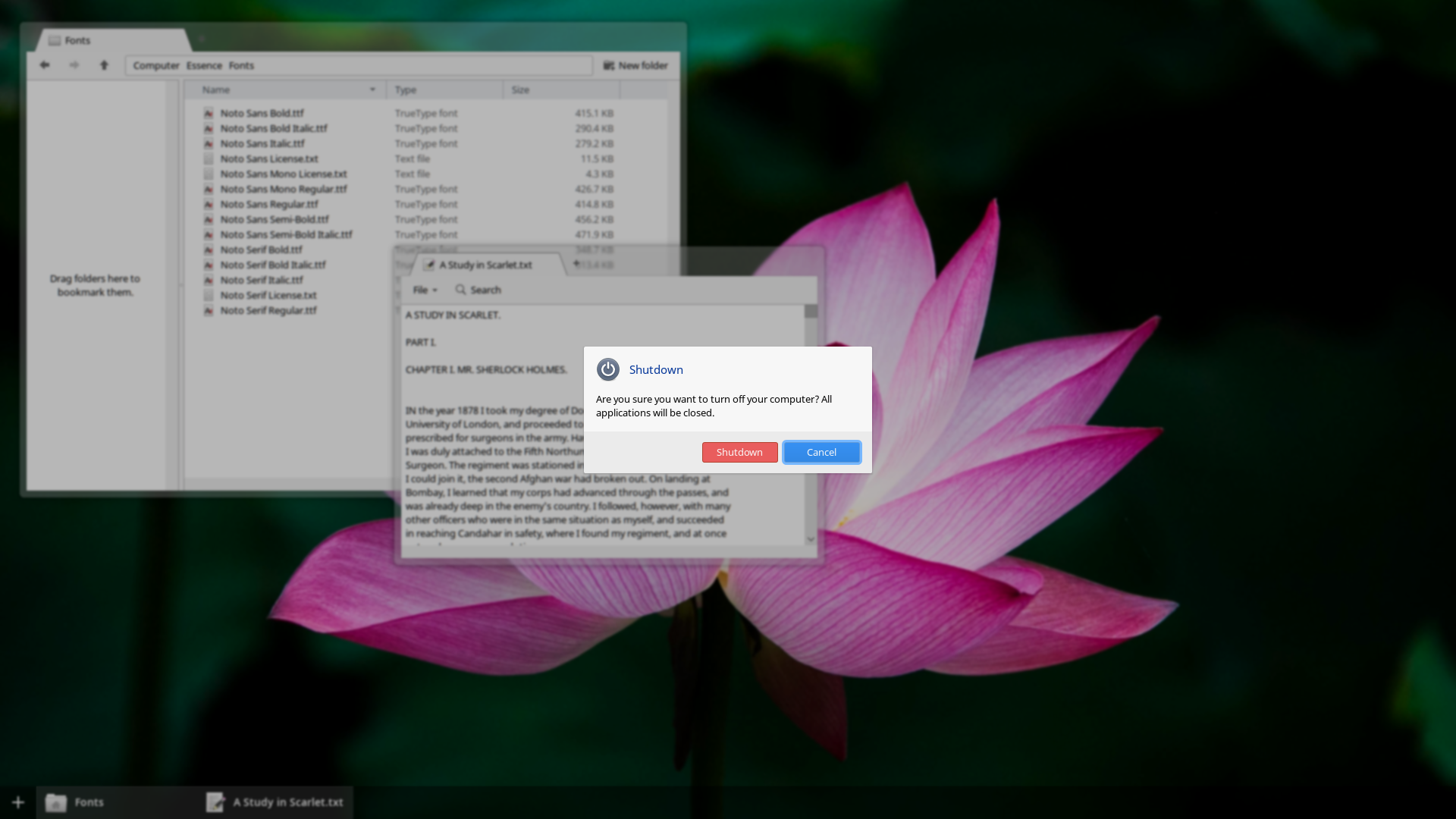|
|
||
|---|---|---|
| apps | ||
| boot/x86 | ||
| desktop | ||
| drivers | ||
| kernel | ||
| ports | ||
| res | ||
| shared | ||
| util | ||
| .gitignore | ||
| CONTRIBUTING.md | ||
| LICENSE.md | ||
| README.md | ||
| start.sh | ||
README.md
Essence — An Operating System
Support
To support development, you can donate to my Patreon: https://www.patreon.com/nakst.
Features
Kernel
- Filesystem independent cache manager.
- Memory manager with shared memory, memory-mapped files and multithreaded paging zeroing and working set balancing.
- Networking stack for TCP/IP.
- Scheduler with multiple priority levels and priority inversion.
- On-demand module loading.
- Virtual filesystem.
- Window manager.
- Audio mixer. (being rewritten)
- Optional POSIX subsystem, capable of running GCC and some Busybox tools.
Applications
- File Manager
- Text Editor
- IRC Client
- System Monitor
Ports
- Bochs
- GCC and Binutils
- FFmpeg
- Mesa (for software-rendered OpenGL)
- Musl
Drivers
- Power management: ACPI with ACPICA.
- Secondary storage: IDE, AHCI and NVMe.
- Graphics: BGA and SVGA.
- Read-write filesystems: EssenceFS.
- Read-only filesystems: Ext2, FAT, NTFS, ISO9660.
- Audio: HD Audio.
- NICs: 8254x.
- USB: XHCI, bulk storage devices, human interface devices.
Desktop
- Custom user interface library.
- Software vector renderer with complex animation support.
- Tabbed windows.
- Multi-lingual text rendering and layout with FreeType and Harfbuzz.
Discussion
Join our Discord server: https://discord.gg/skeP9ZGDK8
Alternatively, visit the forums (not very active): https://essence.handmade.network/forums.
Building
Warning: This software is still in development. Expect bugs.
Linux
Download this project's source.
git clone --depth=1 https://gitlab.com/nakst/essence.git/
Start the build system.
./start.sh
Follow the on-screen instructions to build a cross compiler.
Once complete, you can test the operating system in an emulator.
- If you have Qemu and KVM installed, run
kin the build system. Recommended! - If you have Qemu installed, run
t2in the build system. - If you have VirtualBox installed, make a 128MB drive called
vbox.vdiin thebinfolder, attach it to a virtual machine called "Essence" (choose "Windows 7 64-bit" as the OS), and runvin the build system.
Keyboard layout
To set the default keyboard layout for use in the emulator to match your current one, run:
setxkbmap -query | grep layout | awk '{OFS=""; print "General.keyboard_layout=", $2}' >> bin/config.ini
Configuration
From within the build system, run the command config to open the configuration editor. Click an option to change its value, and then click the Save button. You changes are saved locally, and will not be uploaded by Git. Not all configurations are likely to work; if you don't know what you're doing, it's probably best to stick with the defaults.
Generating the API header
If you want your project to target Essence, you need to generate the API header for your programming language of choice.
g++ -o bin/build_core util/build_core.c
bin/build_core headers <language> <path-to-output-file>
Currently supported languages are 'c' (also works for C++), 'zig' and 'odin'.
There is currently no documentation for the API; for examples of how to use the API, consult the standard applications in the apps/ folder of the source tree. Minimal sample applications are placed in the apps/samples folder. By placing your application's .ini file in the apps/ folder, it will be automatically built by the build system.


